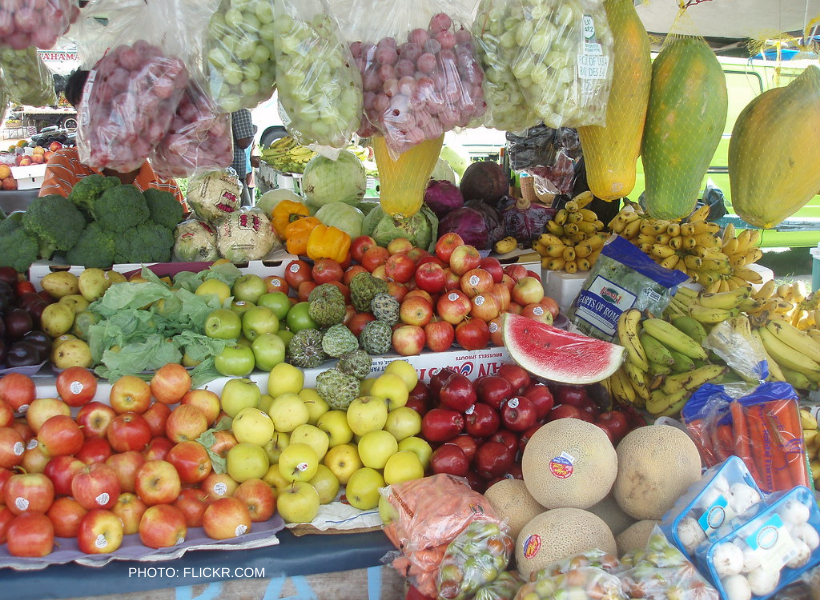The Caribbean continues to encounter multiple threats to food security and safety. Some of these threats include climate change, emerging diseases, and issues in border control and security. Unemployment and poverty, worsened by the COVID-19 pandemic, resulting in food insecurity and limits people’s access to safer, healthier food options, says the Caribbean Public Health Agency (CARPHA)
.
The agency made this statement as countries commemorated World Food Safety Day (WFSD) yesterday.
On 3rd June 2021, Dr. Lisa Indar, CARPHA Director for Surveillance Disease Prevention and Control (SDPC), presented at World Food Safety Day for Latin America and the Caribbean. This virtual meeting was hosted by multiple regional organisations in food safety and security, such as the Food and Agriculture Organization, Pan American Health Organization, Pan American Center for Foot-and-Mouth Disease and Veterinary Public Health, and the Inter-American Institute for Cooperation on Agriculture.
Dr. Indar stressed that food must be healthy, safe, available, and affordable to all in our Region. She lamented those foodborne diseases are preventable, yet the burden of illness remains high for the Region. Many outbreaks are underreported, and the burden of illness falls heavily on infants, elderly persons, pregnant women, the immunocompromised, and persons experiencing poverty.
Guyana Standard was informed that in the Caribbean, 1 in 49 people fall ill from foodborne disease. At mass gatherings, such as Carnivals and at family events for the holidays, 1 in 11 people fall ill. Caribbean countries have been estimated to spend US$21M million annually in managing and addressing foodborne diseases.
CARPHA noted that the Caribbean’s population is exposed to multiple disease-causing agents, which are bacterial, parasitic, and viral in origin. Norovirus, Campylobacter, Giardia, and Salmonella spp. contribute to the greatest burden of illness and hospitalizations. Diseases from seafood, namely vibriosis and ciguatera toxicosis are health concerns faced by some Caribbean States. The ecology of these mentioned disease agents is also influenced by climate change. Increasing air and water surface temperatures and worsening floods and storms will increase the risk of exposure to many persons, pets, and food-producing animals.
Foodborne diseases are a priority for the Caribbean’s travel and tourism sector. Globally, the Caribbean continues to stand as the premier visitor destination for tourists. The tourism and travel sector contribute 40-60% of the GDP (Gross Domestic Product) for some countries.
” Ensuring a healthier, safer destination, is critical for many Caribbean States, as we market ourselves as a safe option for travel, during the COVID-19 pandemic. Disease outbreaks at hotels and on cruise ships often lead to reputational damage and a loss in income to the involved industry and the country,” CARPHA said.
The agency noted that to effectively address these challenges and to build resilience for the tourism sector, it has implemented an innovative, near real-time surveillance system called the Tourism and Health Information System (THiS). This surveillance system provides an early warning and mitigation of foodborne outbreaks at Caribbean hotels and stay-in accommodations. To date, CARPHA has trained over 600 facilities in the Region in the use of THiS.
In collaboration with our regional stakeholders, CARPHA has also trained and built capacity in the multiple Member States in sampling, testing, disease investigation, and risk communication.
“Our Member States continue to benefit from an integrated, One Health approach to preventing and managing foodborne disease outbreaks. Graduates of the CARPHA Field Epidemiology and Laboratory Training Program (FELTP) have been instrumental in investigating foodborne outbreaks in countries. Our Environmental Health and Sustainable Development (EHSD) department conducts testing on food and environmental samples.”
The Caribbean Medical Microbiology Laboratory (CMML) is also equipped to conduct molecular testing and isolation for isolated pathogens and stool samples.
CARPHA said it will continue to support and build capacity for the implementation of multisectoral, integrative surveillance for foodborne diseases. It added that a scaling up of its surveillance and response measures to foodborne illness is underway.













